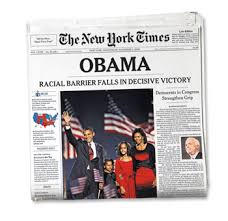Zero conditional
The conditional 0 is used to express general truths and facts (often things based on scientific fact).
Uses the simple present tense:-
Formation
| (IF Clause) |
(Main Clause)
|
|---|---|
| If you heat water to 100°C, | it boils. |
or…
| (Main Clause) |
(IF Clause)
|
|---|---|
| Water boils | if you heat it to 100°C, |
For example:
- If you drop an apple, it falls. = An apple falls, if you drop it. (This is an absolute truth based on scientific fact – gravity).
- If you don’t do your homework, I will be disappointed. = I will be disappointed, if you don’t do your homework. (This is a general truth based on previous knowledge – you know that I am disappointed if people don’t do their homework).
Note! Most zero conditional sentences mean the same thing if “when” is used instead of “if“.
The first conditional
It is used to express situations based on fact in the present or future (things which may happen).
Uses the simple present tense:-
Formation
| (IF Clause) |
(Main Clause)
|
|---|---|
| If I see you tomorrow, | I will buy you a drink. |
or…
| (Main Clause) |
(IF Clause)
|
|---|---|
| I will buy you a drink | if I see you tomorrow. |
We often use unless which means ‘if … not‘.
Formation
| (IF Clause) |
(Main Clause)
|
|---|---|
| Unless you hand in your homework, | I won’t mark it. |
| means | |
| If you don’t hand in your homework, | I won’t mark it. |
or…
| (Main Clause) |
(IF Clause)
|
|---|---|
| I won’t mark your homework | unless you hand it in. |
| means | |
| I won’t mark your homework | if you don’t hand it in. |
Note! We never use will, or won’t in the if clause.
For example:
- If I have time today, I will phone my friend. = I will phone my friend, if I have time today. (It is possible that I will have time – therefore the condition is real).
- If I go to England, I will buy some Cheddar cheese. = I will buy some Cheddar cheese, if I go to England. (It is possible that I will go to England – therefore the condition is real).
The second conditional
It is used to express unreal situations in the present or future. Often used to express a wish.
Uses the simple past tense:-
Formation
| (IF Clause) |
(Main Clause)
|
|---|---|
| If I won the lottery, | I would buy a new house. |
or…
| (Main Clause) |
(IF Clause)
|
|---|---|
| I would buy a new house | if I won the lottery. |
Note! We never use would, or wouldn’t in the if clause.
For example:
- If I were you, I wouldn’t do that. = I wouldn’t do that, if I were you. (I am not you – therefore the condition is unreal).
- If I had more time, I would do more on my websites. = I would do more on my websites, if I had more time. (I don’t have more time – therefore the condition is unreal).
The Third conditional
Used to express conditions in the past that did not happen. Often used to express criticism or regret with would have, could have or should have.
Uses the past perfect tense:-
Formation
| (IF Clause) |
(Main Clause)
|
|---|---|
| If I had worked harder, | I would have passed my exam. |
| If I had worked harder, | I could have passed my exam. |
| If I had worked harder, | I should have passed my exam. |
or…
| (Main Clause) |
(IF Clause)
|
|---|---|
| I would have passed my exam | if I had worked harder. |
| I could have passed my exam | if I had worked harder. |
| I should have passed my exam | if I had worked harder. |
Note! We never use would have, or wouldn’t have etc in the if clause.
For example:
- If I hadn’t helped you, you would have failed. = You would have failed, if I hadn’t helped you. (I helped you so you didn’t fail).
- If it had been sunny, we could have gone out. = We could have gone out, if it had been. (We didn’t go out because it wasn’t sunny).
Exercises one two three (first conditional) four (second conditional)
five (third conditional) six (are you supersticious?) practise unless, if, as soon as seven








Leave a comment